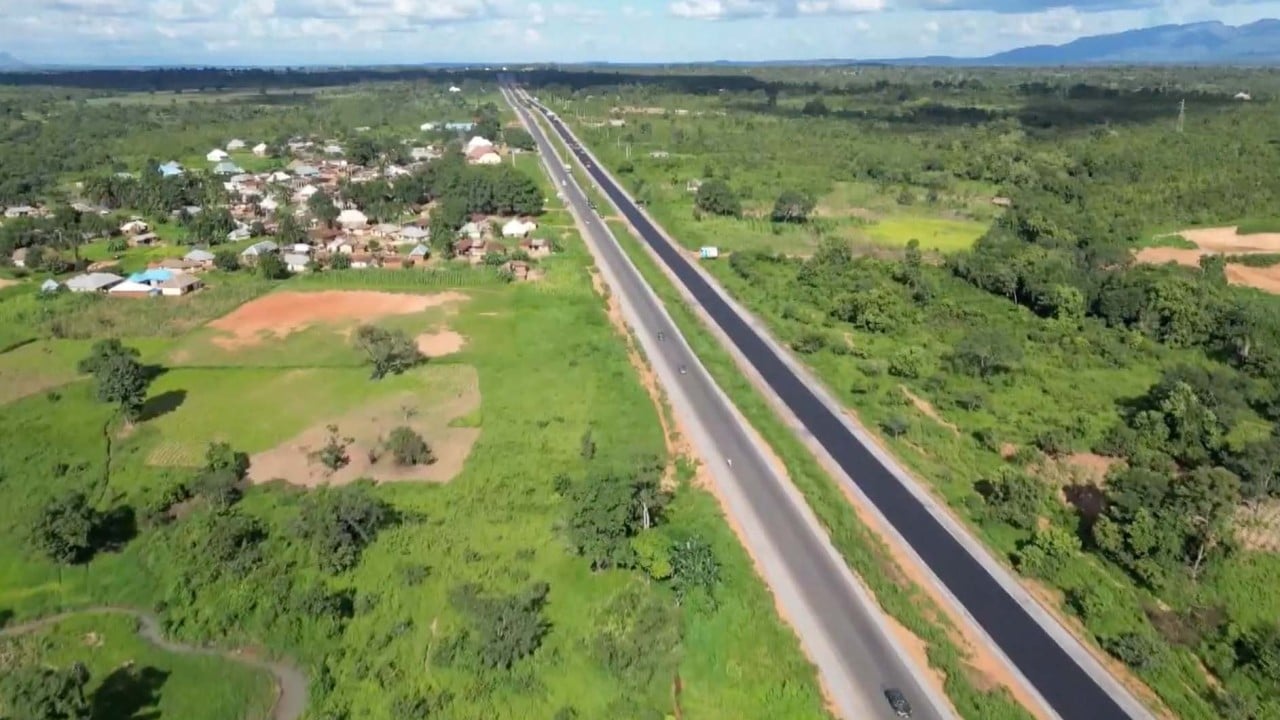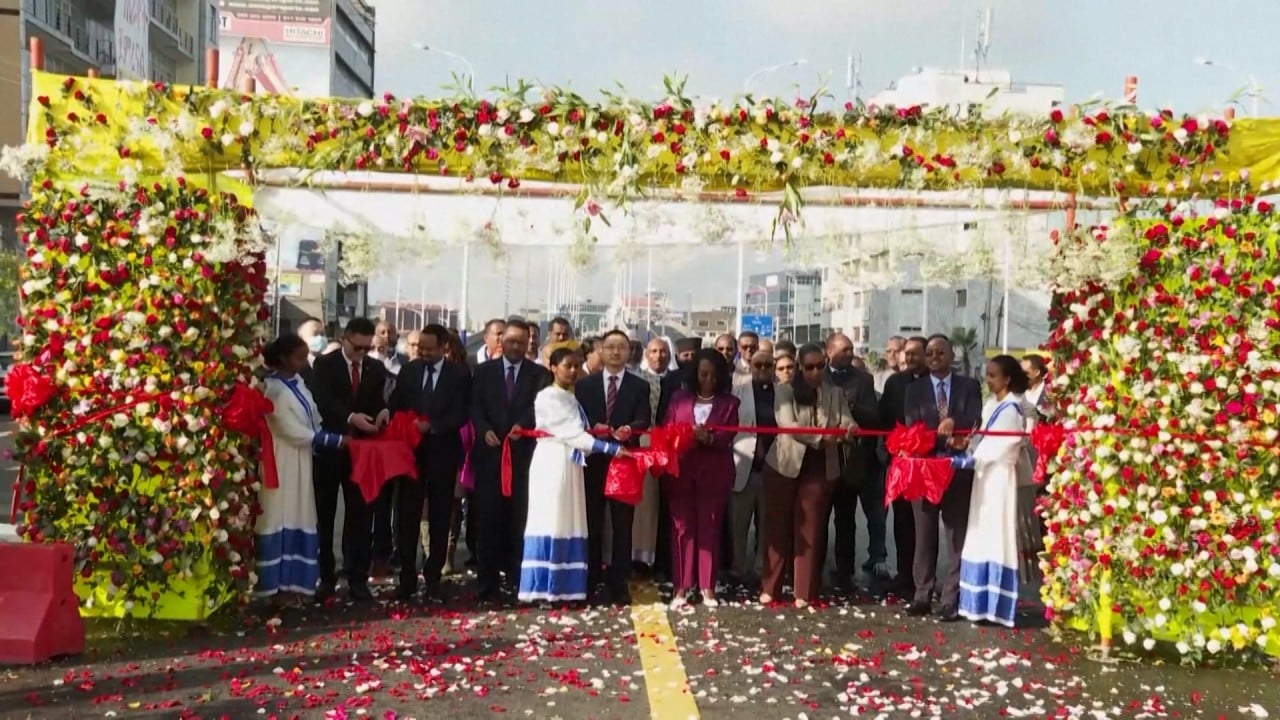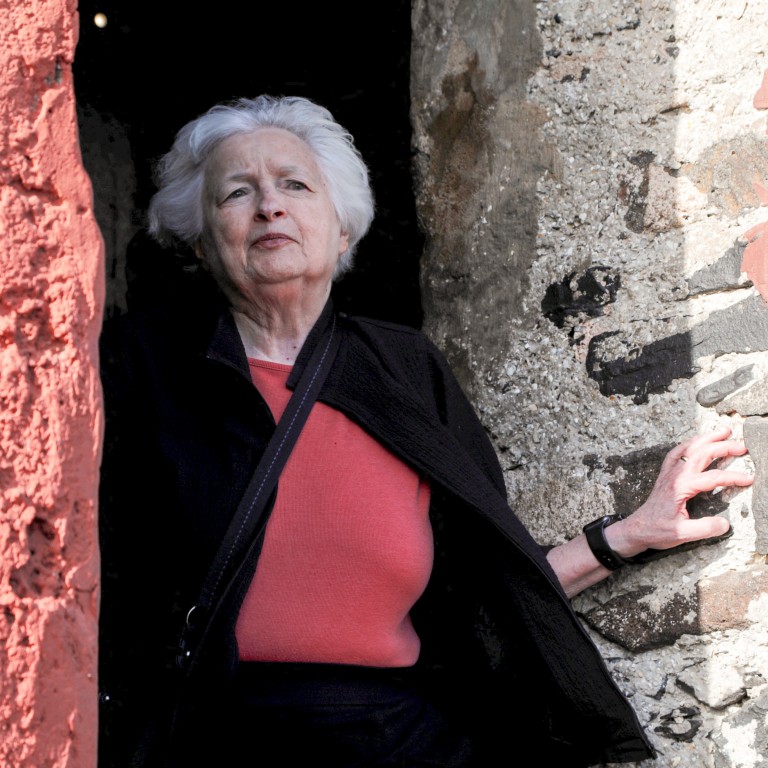
US steps up engagement with Africa in bid to counter rising Chinese and Russian influence
- Visits to continent by treasury chief and ambassador to UN follow summit in Washington last year
- Biden has pledged to invest US$55 billion in African infrastructure and other areas in next three years
US President Joe Biden’s administration has increased its engagement with African countries in a charm offensive aimed at pushing back against rising Chinese and Russian influence.
Yellen visited Senegal, Zambia and South Africa in a 10-day tour starting on January 17, while Thomas-Greenfield visited Kenya, Mozambique and Ghana over five days from January 25.
She also took a swipe at China’s debt relief practices in Africa.
“We believe that the international community, including China, needs to provide meaningful debt relief to help countries regain their footing,” she said.
It was a message she repeated while in Zambia, calling China a barrier to ending the country’s debt problem.
Gyude Moore, a senior policy fellow at the Washington-based Centre for Global Development and a former public works minister in Liberia, said such criticisms by American officials were less effective than they could otherwise be.
China tells US to fix own problems before weighing in on African debt
“Russia and China are also making a case for themselves – emphatically,” he said. “Russia has managed to blunt any blanket condemnation from Africa, while even among African publics, sentiments about China are progressively positive.”
Abhishek Mishra, an associate fellow with the New Delhi-based Observer Research Foundation’s African strategic studies programme, said there was “hardly any lull period in China-Africa relations as new developments continue to unfurl almost every month”.
Foreign Minister Qin Gang’s tour showed Africa what China can offer: analysts
He said this year was no different, with Qin’s visit showing the value and importance that Beijing attached to its friendship with Africa.
“While speculation of a Chinese retrenchment from Africa continues, the reality … is totally different,” Mishra said.
Nigeria had commissioned the new Lekki deep-sea port in Lagos and the 27km (17-mile) Blue Line light rail system that was Chinese-financed and built. In Uganda, the Kingfisher oil drilling platform on Lake Albert, operated by China National Offshore Oil Corporation, had started drilling for oil in January despite protests from environmentalists.
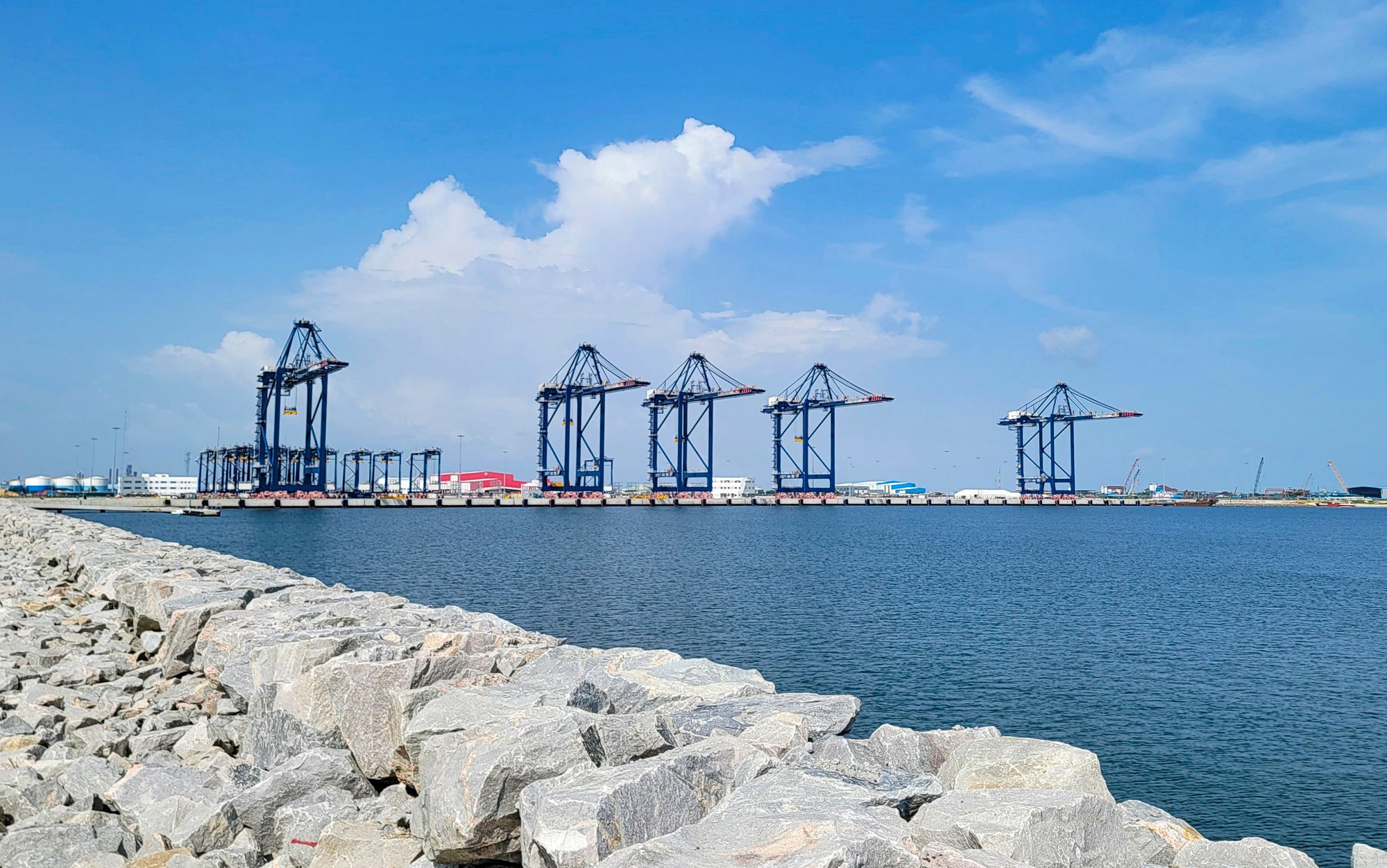
“These are high-scale projects which are visible and could potentially have a transformative effect on the local economy,” Mishra said in a paper published on February 1. “The day when the West comes close to even remotely outperforming China in Africa seems distant.”
Biden promised during the US-Africa Leaders Summit in Washington in December that he would visit Africa this year and that high-ranking officials in his administration would also tour the continent.
During the summit, Biden pledged US$55 billion in investment in African infrastructure, agriculture, energy, health systems, information technology and security over the next three years in a renewed effort to counter China’s growing influence on the continent.
How the US lost Africa to China over new disease control headquarters
Mishra described the diplomatic offensive as supercharged and said it showed Biden’s resolve to follow through on his declaration at the summit that he was “all in on Africa and all in with Africa’”.
Alex Vines, head of the Africa programme at the London-based Chatham House think tank, said more trips to Africa by senior US officials were scheduled for this year. He said US policymakers increasingly understood that Africans had a choice, and that the US objective was to be the most attractive option.
“It’s noticeable that Washington is speaking less about Chinese ‘debt traps’ and more about transparency,” Vines said.
China gives support to Africa push for seat at G20, UN Security Council
Cameron Hudson, a former US official who is now a senior associate at the Washington-based Centre for Strategic and International Studies’ Africa programme, said one complaint that Washington heard frequently from Africans was “that we are not present on the continent and that the issues that matter to Africans are not prioritised by Washington”.
“These visits are intended to reverse that perception,” he said, while adding that Washington still had a credibility problem in Africa.
“On the one hand, it tells Africans ‘you don’t have to choose who your partners are’, and then, on the other hand, it goes to great lengths to say how terrible those partners are,” Hudson said. “I fear that telling them they don’t have to choose and then lobbying them to choose Washington is going to backfire.”
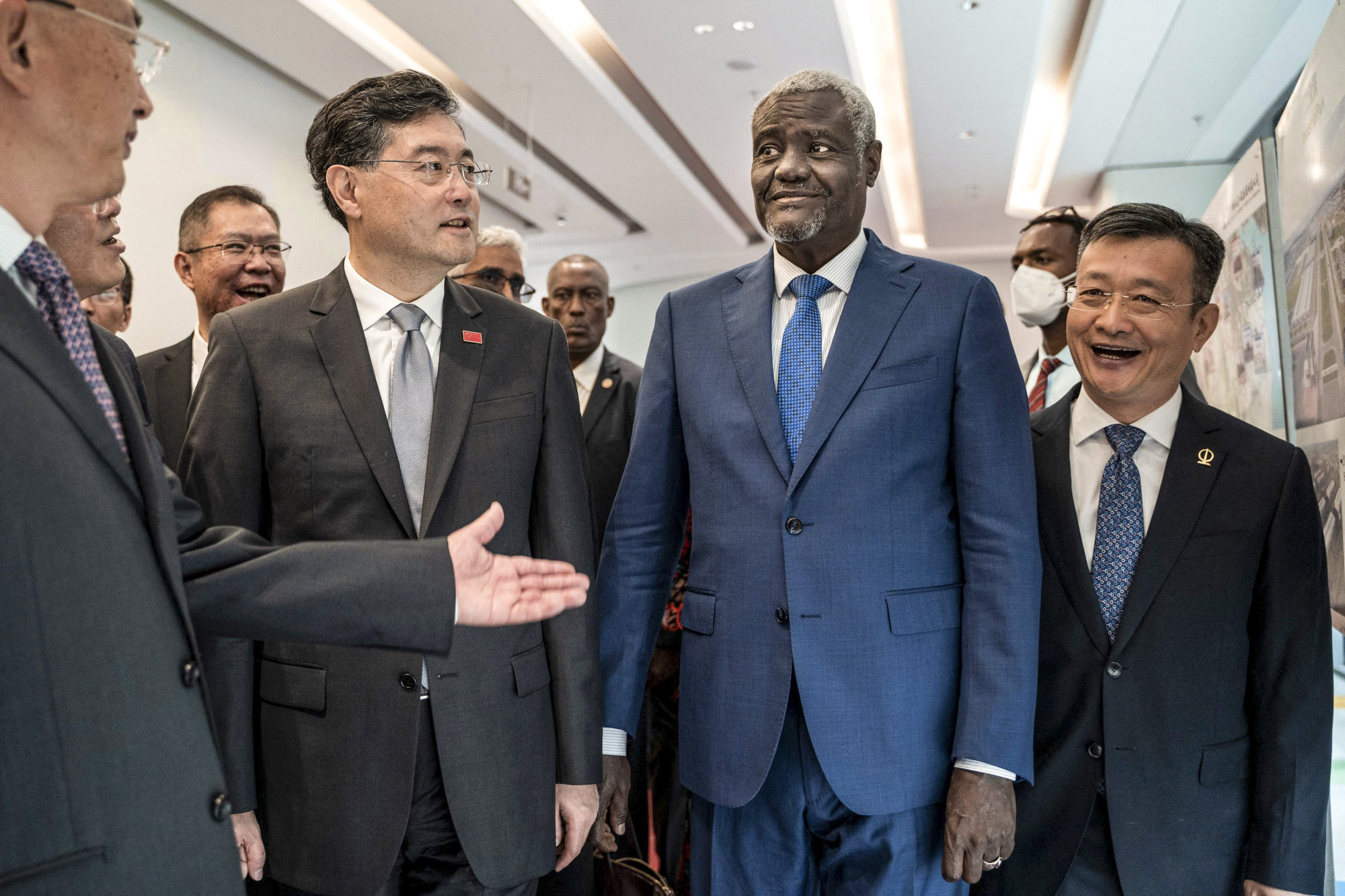
Total China-Africa trade reached more than US$282 billion last year, up 11 per cent year on year, while US-Africa trade for the first 11 months of last year reached US$67.36 billion, more than in the whole of 2021, according to US data.
Biden proposed last year a US$600 billion initiative with the Group of Seven to build infrastructure through its Partnership for Global Infrastructure and Investment. Washington aims to mobilise US$200 billion of that over the next five years through grants, financing and private sector investments.
However, Hudson said China had a 30-year head start in investing in African infrastructure.
China-Africa trade recovers from Covid slump to hit record US$282 billion
“The US is never going to catch up or even realistically compete with that for the simple reason that Africa will never really be seen by the US as a safe place for investment,” he said. “US officials can say that Africa is a land of opportunity but people have to believe that, if investment is going to begin to flow there.
“The Chinese really do believe in the opportunities in Africa. They have believed for a long time and that is why they are so far ahead.”
Vines said the G7’s global infrastructure partnership and the European Union’s Global Gateway were welcome responses to China’s belt and road.
He said China was cutting its outbound investment significantly, “so increased finance for infrastructure from the US and EU is a good thing”.
“There is a massive need in Africa – and choice is good for Africa,” Vines said.
Moore said the great power competition in Africa was a zero-sum game, with a gain for one competitor perceived by the other as a loss.
“The rise and rise of China’s influence and power in Africa is seen as a loss of ground for the US,” he said. “This push is an attempt to reposition the US.”
He said a second reason for the push was China’s dominance of the critical minerals value chain. Moore said the US was attempting to change that and Africa would be one place where US firms would try to gain access to mines.
Africa’s 50-plus votes in international forums also remained a coveted prize, he said.


